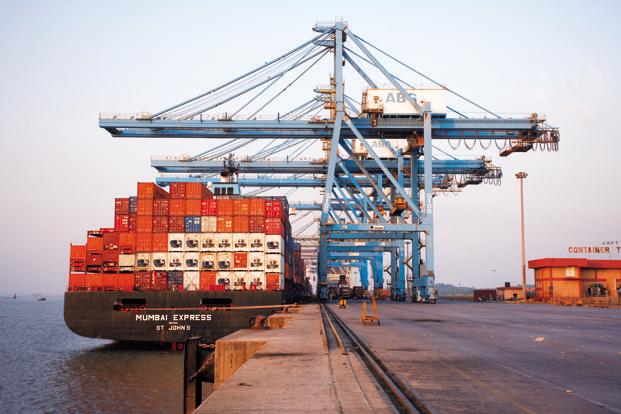Japan’s exports seen surging in August, wholesale prices staying high

Japan’s exports likely surged for the sixth straight month in August thanks to strong global demand for machinery goods and a flattering comparison with last year’s pandemic-induced slump, a Reuters poll showed on Friday.
Japan’s wholesale prices were expected to stay at more than 10-year highs in August due to global commodity inflation and a weak yen, while firms’ machinery orders likely rose in July, according to analysts polled by Reuters.
Exports likely jumped 34.0% in August from a year earlier, the sixth month of double-digit gains, though they were seen slowing from July’s 37.0% increase, the poll showed.
Export growth has been strong even as factory halts and supply issues due to the spread of COVID-19 variants in Southeast Asia and a global chip shortage are hitting Japanese carmakers.
Takeshi Minami, chief economist at Norinchukin Research Institute, said there are heightened worries about whether a steady economic recovery holds up.
“China’s economic recovery has stalled recently and the spread of the Delta variant in advanced nations is having a suppressing effect,” he said.
Imports likely rose 40.0% year-on-year in August, which would result in a trade deficit of 47.7 billion yen ($434.74 million) after two straight months of surpluses, the poll showed.
Separate data from the Bank of Japan is expected to show Japan’s wholesale prices rose 5.6% year-on-year in August, matching the prior month’s 13-year high.
The corporate goods price index (CGPI), which tracks the prices companies charge each other for their goods, probably rose 0.2% month-on-month in August.
The finance ministry will announce the trade data at 8:50 a.m. on Sept. 16 (2350GMT, Sept. 15), while the CGPI data is due at 8:50 a.m. on Sept. 13 (2350GMT, Sept. 12).
Cabinet Office data due at 8:50 a.m. Wednesday (2350 GMT Tuesday) will likely show core machinery orders, a highly volatile data series as a leading indicator of capital expenditure in the coming six to nine months, gained 3.1% month-on-month in July.
Compared with a year earlier, core orders, which exclude those of ships and electricity utilities, likely grew 15.7% in July partly because of a double-digit drop in the same month last year.
Japan’s economy grew faster than initially estimated in the April-June quarter, helped by solid capital expenditure, although a resurgence in COVID-19 is undermining service-sector consumption and clouding the outlook.


